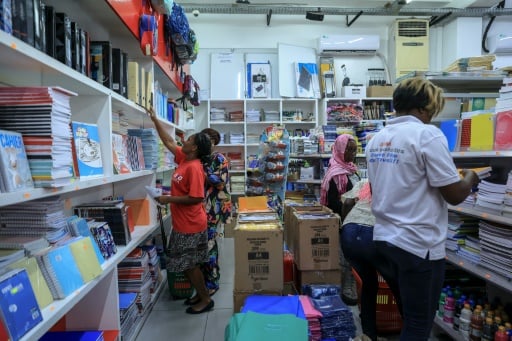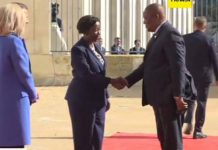Justine Ndoumba and her two daughters wander round the aisles of a school supplies shop carrying a long list of items required to start the new term in the Gabonese capital Libreville.
“The prices have increased and it’s a bit difficult for us,” she admits.
Even with the country’s new military strongman declaring an end to enrollment fees for state and religious schools this year, it is still shaping up to be a tough time for families feeling the pinch from rising prices.
And it will make no difference for Ndoumba’s daughters who attend a private school.
President Ali Bongo Ondimba, who was ousted on August 30, left behind a national education system so ill-equipped that parents will risk everything to get their children into the private sector.
The senior army officers now in charge in the oil-rich central African nation have made schools a priority.
“With 30,000 CFA francs (45 euros, $48) today, you can buy just three or four notebooks,” says Ndoumba, a 38-year-old pharmacist.
“A school bag which used to cost 15,000 (23 euros), today costs 35,000 or 40,000.”
Twenty-three-year-old Charlene Mabika has three children and is shocked at how much prices have gone up over the last year.
“This year it really is too expensive,” she says, pointing to “40,000 (60 euros) for a bag.”
The minimum wage is 150,000 francs a month — about 230 euros.
Justine Ndoumba keeps totting up the costs — the school supplies alone will come to 180,000 francs (270 euros).
“I cannot spend that amount,” she says, deciding to buy items gradually until the end of January.
The new school year begins on September 18 but people have already been queuing outside schools in the week before to enrol and pay the first instalment of tuition fees.












